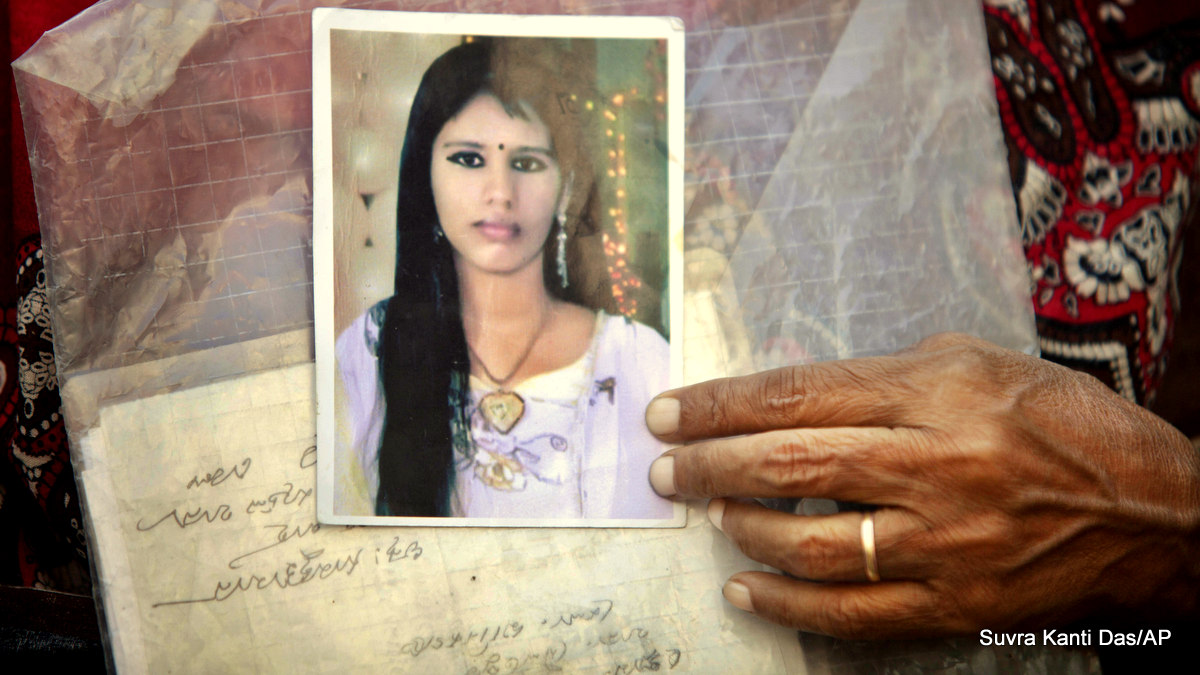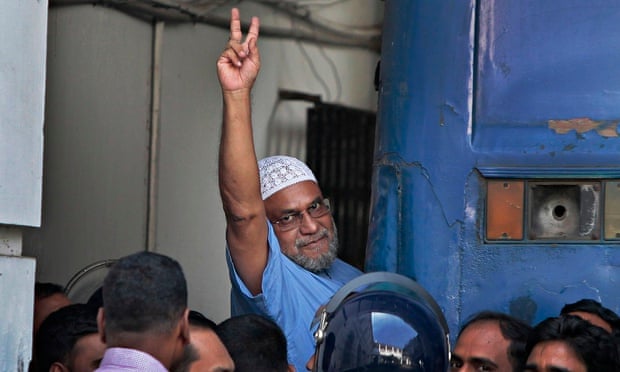By Kathryn Maureen Ryan
Managing Editor, Impunity Watch
DHAKA, Bangladesh – Two years ago last month a deadly fire broke out in the in the Tazreen Fashion factory in the Ashulia district on the outskirts of Dhaka, Bangladesh. At least 17 women and girls were killed in the factory, which made clothing for several major American brands including Wal-Mart and the Walt Disney Company. The fire injured at least 200 workers, making it the deadliest factory fire in Bangladeshi history. Workers in the factory were subjected to sweatshop labor conditions and low pay, as well as an unsafe working environment. Many of the women and girls who worked in the factory were trapped inside when the fire broke out on 24 November 2012 because the factory management had padlocked the exits to prevent workers from leaving early or even taking breaks. Several workers jumped out of windows in an attempt to escape the flames engulfing the factory floor. One survivor, Mohammad Ripu, who jumped from the second floor in an attempt to escape the flames, said that the factory manager had said to the workers after the fire alarm began sounding that “the fire alarm had just gone out of order. Go back to work.”

Three supervisors from the factory were arrested on 28 November 2012, on charges of criminal negligence. Police cited the practice of padlocking exits allegedly used by factory management. Tazreen Factory owner Delwar Hossain claimed that the premises were not unsafe, adding, “It is a huge loss for my staff and my factory. This is the first time we have ever had a fire at one of my seven factories.” However, it was known that the building was not up to code. Investigators found that the fire safety certificates for the facility had expired. This level of negligence is common in factories across the developing world, especially in the garment industry, where workers are underpaid and often subjected to sub-standard working conditions.
Two years after the fire, survivors continued to share their stories. “I jumped from the fourth floor. I lost my eye and broke my spinal cord and leg,” Shahnaz Begum, a Tazreen worker said. “I can’t stand straight and I can’t lie down. I can’t work – I don’t know if I’ll ever be able to. I’m still waiting for fair compensation.” Even two years after the deadly fire took the lives of at least 17 people and sparked international outrage over the poor working conditions in sweatshops across Bangladesh and around the world, the victims of the deadly event and their families are still waiting for compensation from the western companies that contracted with the factory, including well known American brands.
These brands include labels produced by Wal-Mart Stores, Inc., reportedly the largest buyer at the Tazreen factory, as well as Walt Disney Co., Sears Holdings Corp, Dickies, Delta Apparel, Sean Jean, and several others. Advocacy groups say these brands continue to refuse not only to offer adequate compensation, but to even enter into discussions regarding the events with representatives of survivors and their families forward. Essentially, these brands have attempted to distance themselves from the horrific events that unfunded at the Tazreen factory in order to avoid drawing attention to the fact that their business models depend on the use of slave-like sweatshop labor.
“Wal-Mart has yet to take any responsibility for the workers killed and injured,” Babul Akhter, a representative the Bangladesh Garment and Industrial Workers Federation, said last week. Workers at the Tazreen factory say that when the fire broke out, they had just finished filling a shipment to Wal-Mart. According to IndustriALL Global Union, an umbrella group with 50 million members worldwide, US brands that bought projects from the factories continue to refuse to move forward on compensation talks. “None of these brands have paid a cent towards compensation,” IndustriALL states.
The Tazreen factory fire is often compared to the Triangle Shirtwaist Factory fire of 1911, which took the lives of more than 100 garment workers in a sweatshop in Manhattan, many of the women and girls who were killed in the fire jumped to their deaths to escape the smoke and flames after they were locked into the building. The Triangle Shirtwaist Factory fire became one of the most significant events in the American Labor Movement sparking calls for stricter workplace safety standards, fair pay, and unionization across the United States. The Tazreen factory fire has had a similar effect in Bangladesh. The event reminded the world that low-priced clothing comes at a cost, and strengthened calls among factory workers in Bangladesh and around the world to demand safer working conditions, fair compensation, and even the right to join a labor union.
For more information please see:
Mint Press News – Two Years On, Bangladeshi Garment Workers Still Awaiting Compensation from Major US Brands – 4 December 2014
Clean Clothes Campaign – Agreement on Tazreen compensation announced – 23 November 2014
The New York Times – Documents Reveal New Details about Walmart’s Connection to Tazreen Factory Fire – 10 December 2012
The Wall Street Journal – Bangladesh Fire: What Wal-Mart’s Supplier Network Missed – 10 December 2014



